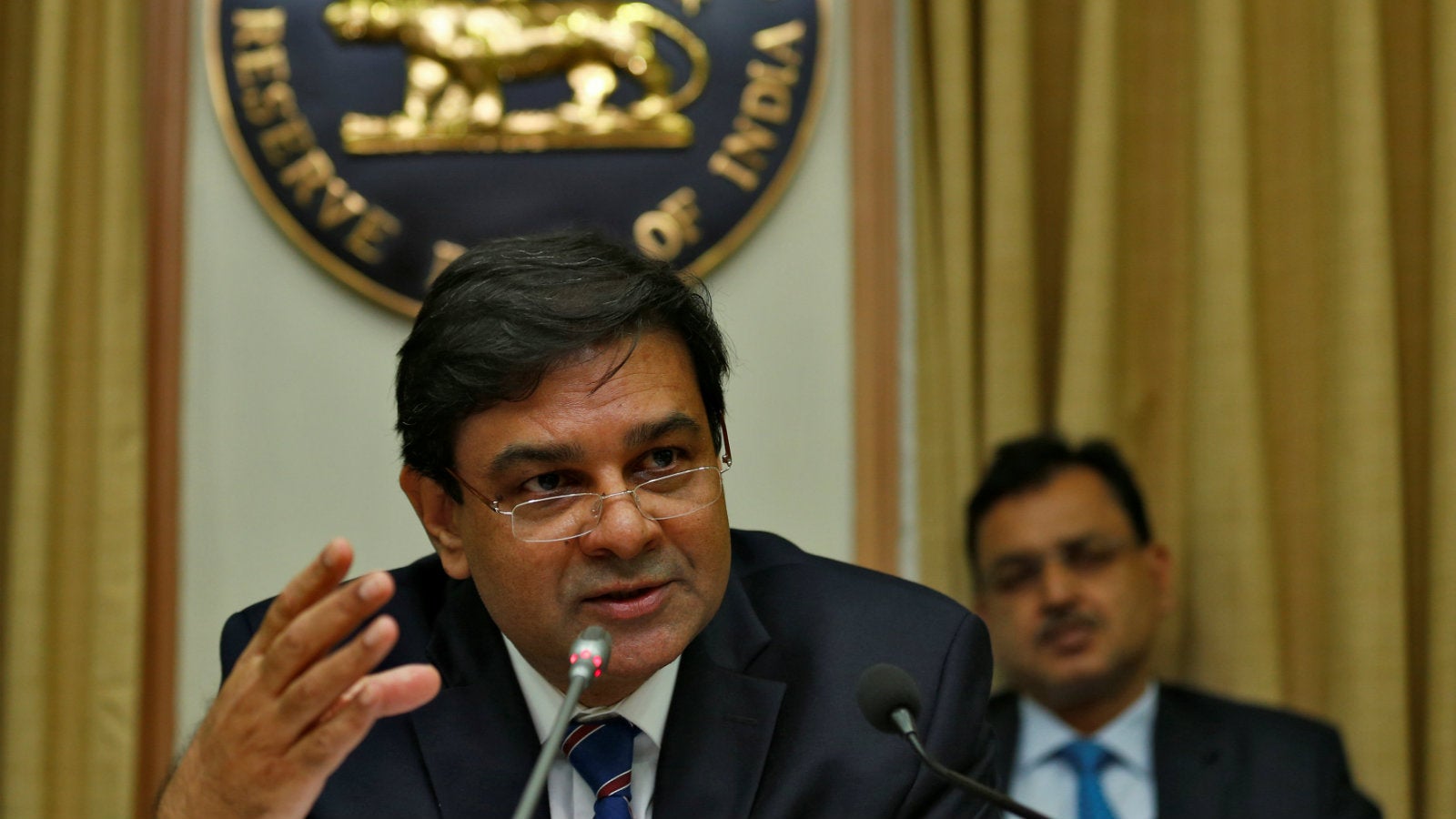India’s banking system is imploding—and those responsible are busy bickering
The banking regulator’s month-long silence following the country’s biggest bank fraud was chilling. But the March 14 speech of Urjit Patel, the governor of the Reserve Bank of India (RBI), was even more eerie than his silence.


The banking regulator’s month-long silence following the country’s biggest bank fraud was chilling. But the March 14 speech of Urjit Patel, the governor of the Reserve Bank of India (RBI), was even more eerie than his silence.
Expressing his helplessness against the likes of jewellers Nirav Modi and Mehul Choksi, who allegedly defrauded the state-run Punjab National Bank (PNB) of over $2 billion, Patel not only passed the buck to the government, but also listed out over a dozen things wrong with India’s banking system itself. He may have also placed himself on a war-path with the government which, not surprisingly, has already denounced his comments.
Then, the Banks Board Bureau hit out at the government citing a “communication breakdown,” the Business Standard newspaper reported on March 20. The government has sat on recommended reforms, the Bureau chairman Vinod Rai said, further exposing the disarray in the governance of India’s public sector (PSU) banks.
None of this bodes well for India. “Both RBI and the government should be very conscious that this is an international issue. The image of India is at stake,” a former RBI governor told Quartz, requesting anonymity. “There may be differences in view. You should not be talking through the media to the people of India. This has definitely spoilt India’s reputation as a rising power internationally,” he added.
But then, somebody had to spell out the issues plaguing the system lest taxpayers and investors remained in the dark. The sorry state of affairs was first exposed by the massive pile up of bad loans, later by the spate of bank frauds and, now, by the regulator’s own admission.
The frightening questions
“Under the law and according to custom, the RBI cannot hold PSU bank boards accountable for assessing and, when necessary, replacing weak and non-performing senior management and government-appointed board members,” Patel said.
When he, speaking for the first time since the many frauds came to light, admits that the RBI is powerless in this regard, does it imply that some of the PSU banks’ management personnel or directors deserve to be thrown out?
Question no. 1: Does he not owe it to taxpayers to reveal the names?
“Of course. Nothing (the law) forbids you. If you do it, the government can fire you. Or you can step down,” the former RBI governor said.
Furthermore, according to Patel, “in a remarkable exception of sorts, in some cases there is a duality of managing director and the chairman—they are the same—implying the MD is primarily answerable only to himself or herself.” In other words, there is no accountability. “The ultimate authority over their tenure is with the government and not the RBI,” he added.
However, the former RBI governor disagrees vehemently. “That is not correct. He can remove the directors in consultation with the government. If they (the government) don’t agree, and the RBI representative is there in the meeting, he can resign. This is not something that should have come to the public eye,” he said.
Question no. 2: If the regulator is helpless in exposing or acting against the corrupt, then what is the honour left for the financial system in Asia’s third-largest economy?
“This will again shatter public and investor confidence in PSU banks,” said a senior private bank executive, asking not to be named.
Quoting from the Financial Stability Report of June 2017, Patel also said, “Almost all corporate loan-related fraud cases get seasoned for two to three years as NPAs (non-performing assets) before they are reported as fraud.”
Let’s not mistake these statements for revelations. Informally, these indirect allegations are accepted as facts in India. However, a sitting governor admitting to such systemic decay has grave implications. “The citizen can say, the media can say, but he is the regulator. There is a way to do things without hurting the country’s image,” the former RBI governor said.
When the RBI could act
Even if one were to accept Patel’s call for more power and reforms, he would still be accountable for some lapses in the private banking space where he has more regulatory powers.
Bank after bank, public and private, has been found to have under-stated the quantum of bad loans. Did the RBI take the executives to task? “Two consecutive years of huge divergence in (bad loans at) Yes Bank and Axis Bank…massive systemic insurance mis-selling by ICICI Bank in Rajasthan…all it (RBI) did was (impose) some paltry fines,” said independent banking analyst Hemindra Hazari. “RBI is just diverting attention by asking for more powers.”
Over to the government
Patel was just a few days into his new role as RBI governor when the government announced the demonetisation of two high-value currency notes. He drew a lot of flak from critics for his inability to say no to the drastic move.
That was in 2016. Now, Patel finds himself across the aisle from the ruling dispensation.
The government, on its part, has passed the buck back to the RBI. “The prime minister had said that the government will not interfere in banks’ internal functions. Now if the banks have failed to live up to what the law expects them to do, and betrayed the trust of the government, why should the government face criticism?” a senior government official asked.
Meanwhile, if the system is indeed so decayed from within, should Indians and foreign investors be grateful to Patel for exposing the truth? It may depend on his follow-up actions. He has promised to “drink the poison to clean the system.” But will the government wait?
After all, “RBI is independent within the limits set by the government,” was the admission by former governor YV Reddy many years ago.